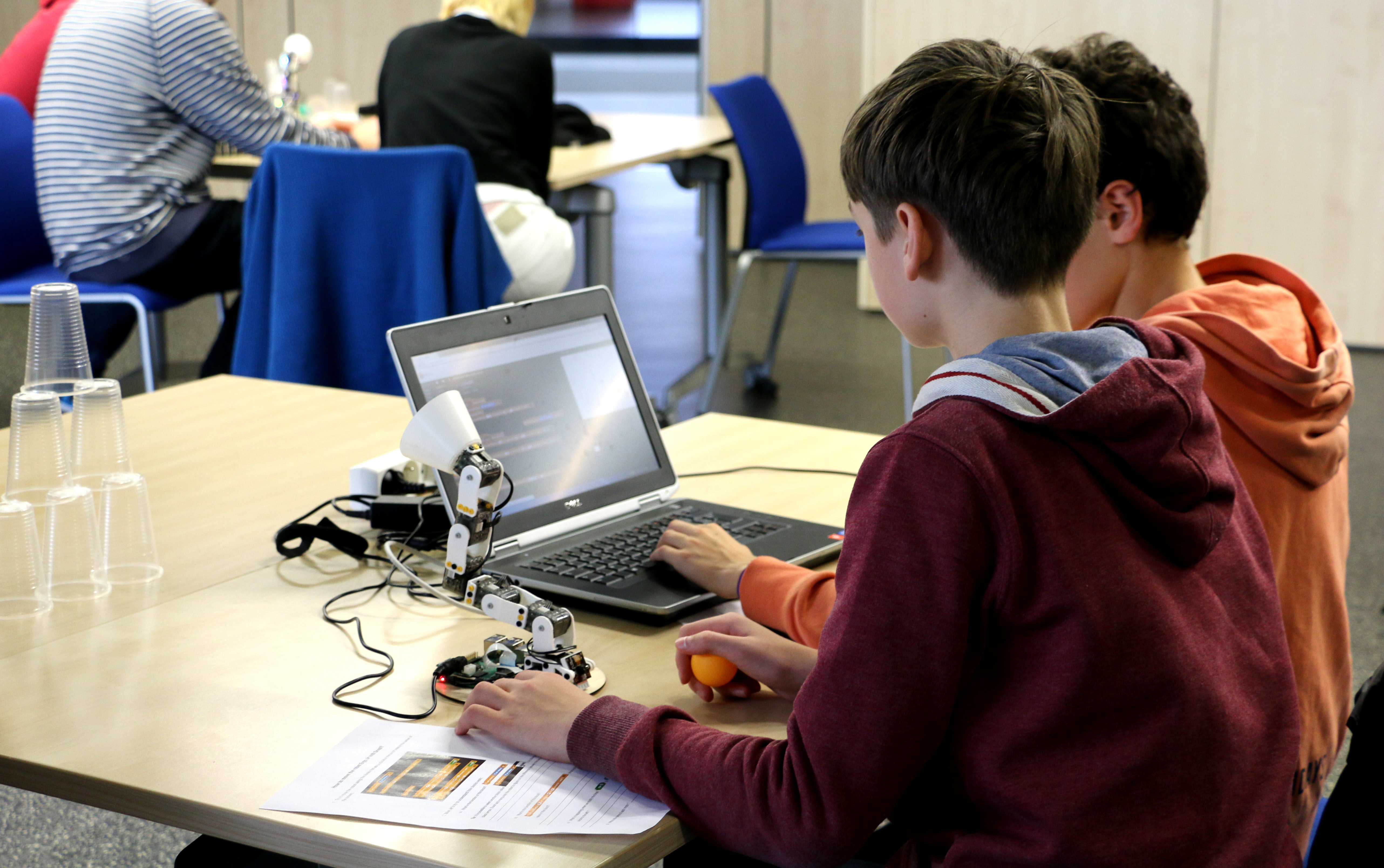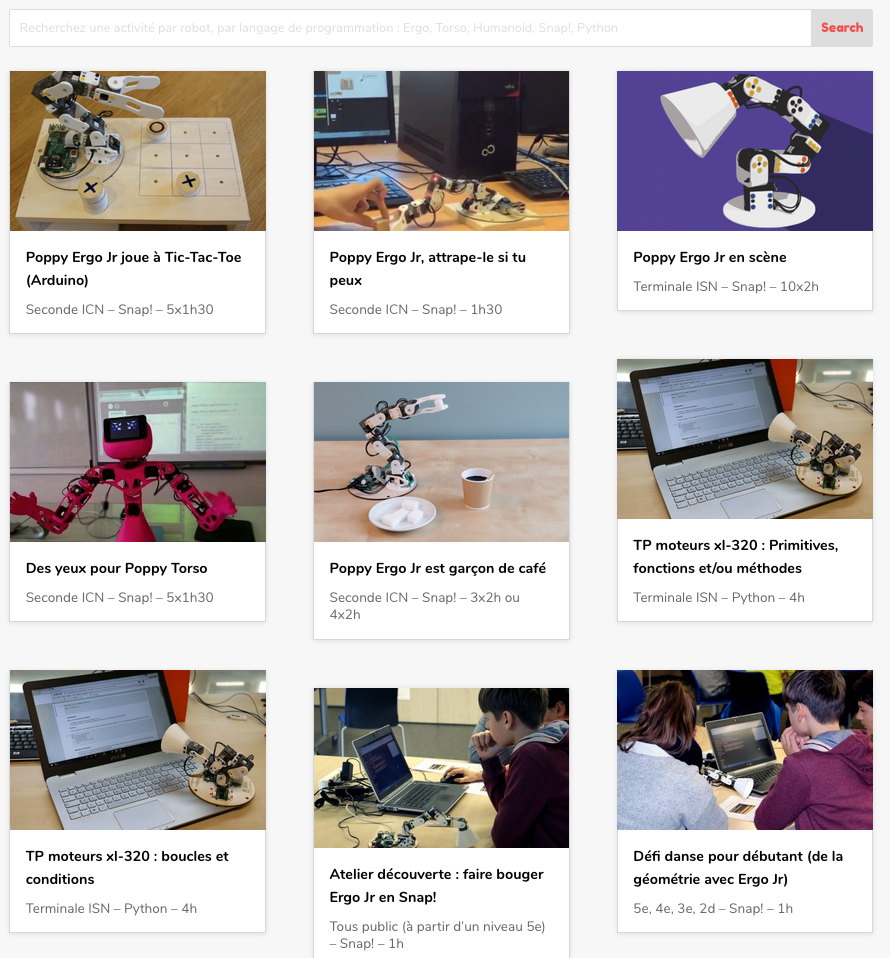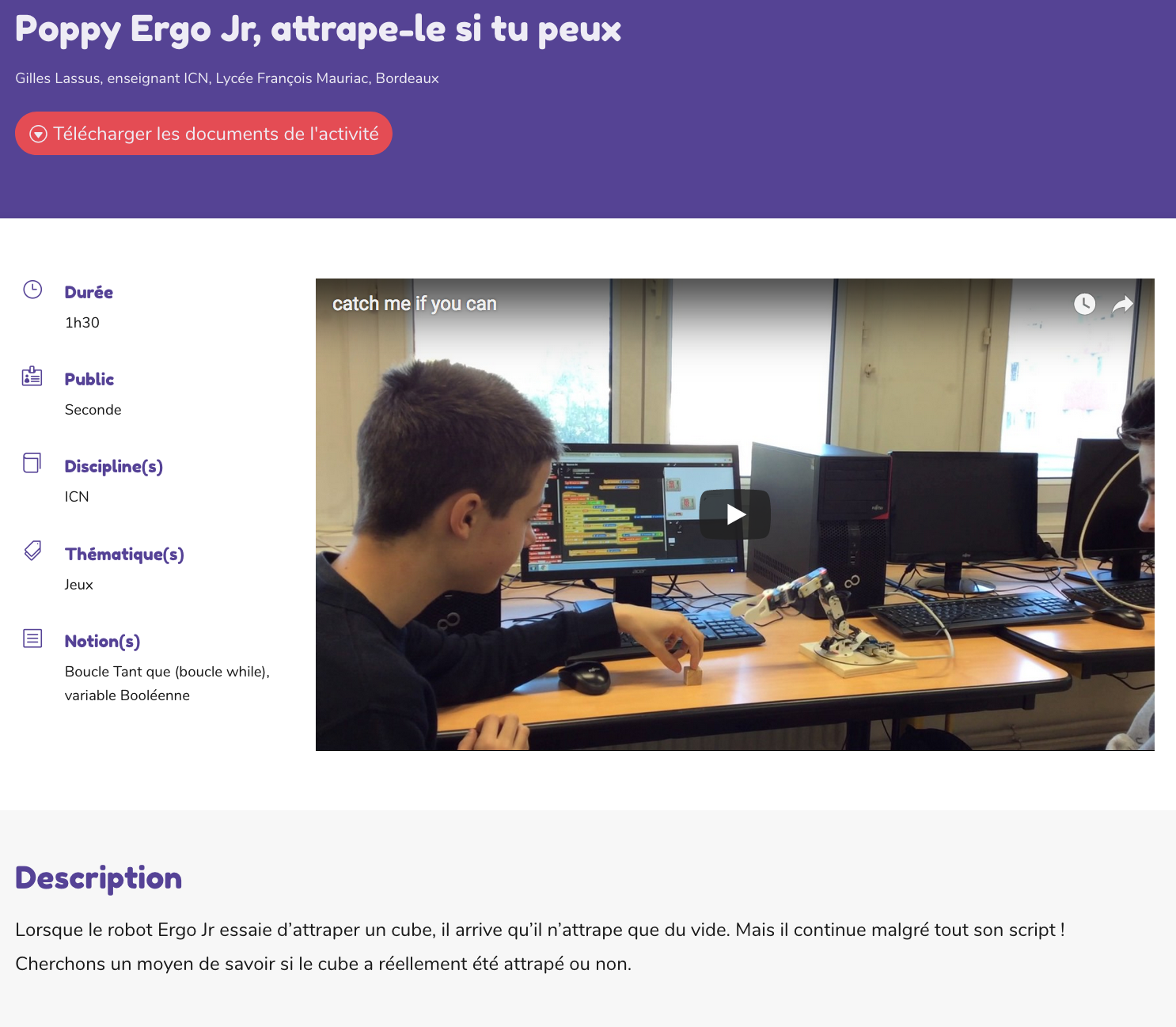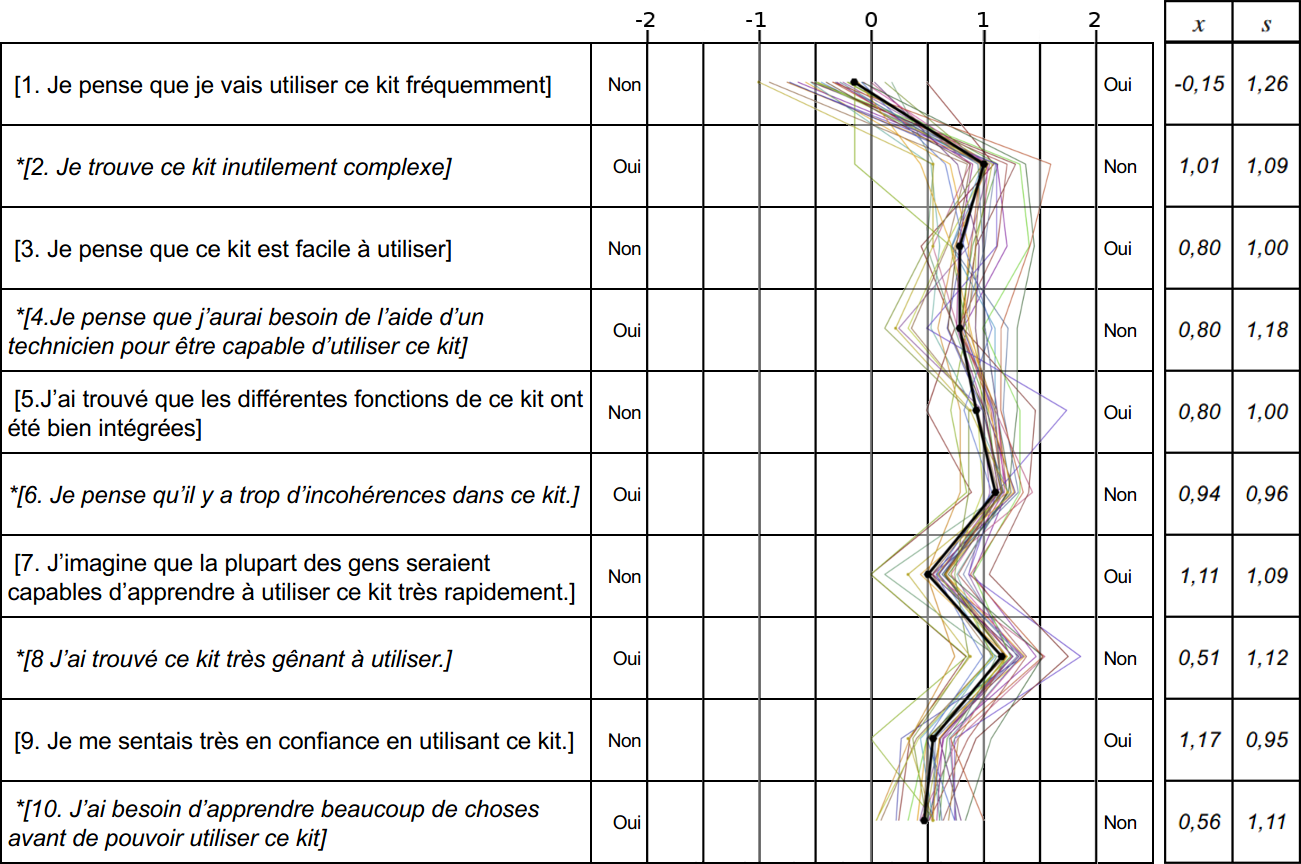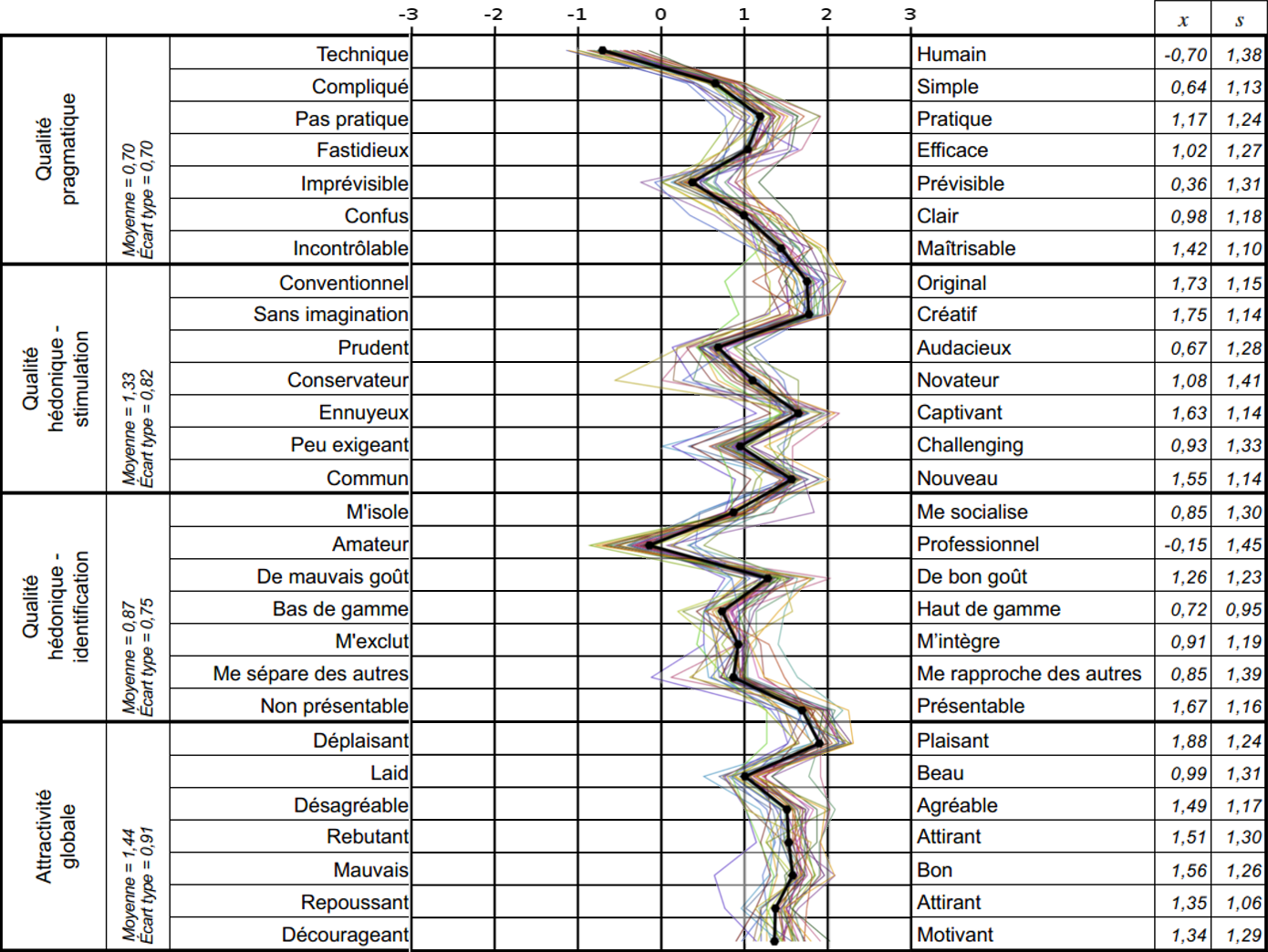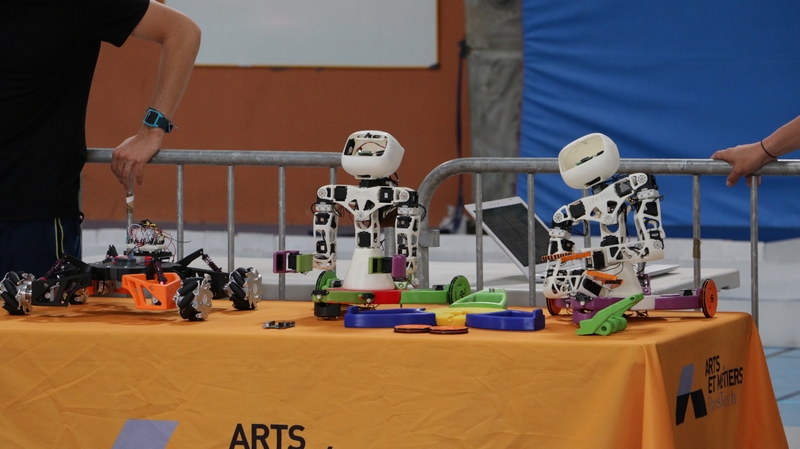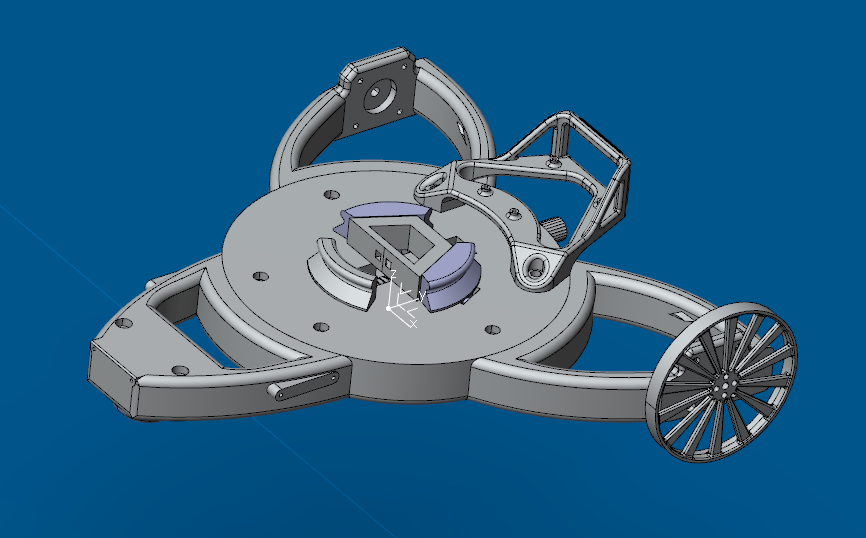Section: New Results
Applications in Educational Technologies
Machine Learning for Adaptive Personalization in Intelligent Tutoring Systems
Participants : Manuel Lopes [correspondant] , Pierre-Yves Oudeyer, Didier Roy, Alexandra Delmas, Benjamin Clement.
The Kidlearn project
Kidlearn is a research project studying how machine learning can be applied to intelligent tutoring systems. It aims at developing methodologies and software which adaptively personalize sequences of learning activities to the particularities of each individual student. Our systems aim at proposing to the student the right activity at the right time, maximizing concurrently his learning progress and its motivation. In addition to contributing to the efficiency of learning and motivation, the approach is also made to reduce the time needed to design ITS systems.
We present an approach to Intelligent Tutoring Systems which adaptively personalizes sequences of learning activities to maximize skills acquired by students, taking into account the limited time and motivational resources. At a given point in time, the system proposes to the students the activity which makes them progress faster. We introduce two algorithms that rely on the empirical estimation of the learning progress, RiARiT that uses information about the difficulty of each exercise and ZPDES that uses much less knowledge about the problem.
The system is based on the combination of three approaches. First, it leverages recent models of intrinsically motivated learning by transposing them to active teaching, relying on empirical estimation of learning progress provided by specific activities to particular students. Second, it uses state-of-the-art Multi-Arm Bandit (MAB) techniques to efficiently manage the exploration/exploitation challenge of this optimization process. Third, it leverages expert knowledge to constrain and bootstrap initial exploration of the MAB, while requiring only coarse guidance information of the expert and allowing the system to deal with didactic gaps in its knowledge. The system is evaluated in a scenario where 7-8 year old schoolchildren learn how to decompose numbers while manipulating money. Systematic experiments are presented with simulated students, followed by results of a user study across a population of 400 school children. [14]
Linear UCB for intelligent tutoring system
What we wanted to do was to use the feature space considering features of students, features of explanations and maybe feature about the exercises. We wanted use this feature space to guide the bandit algorithm to recommend explanations. The algorithms that we already developed cannot be used in this kind of problem, because the order and the value of the bandit values depends on the time and on the learning progress the actions give in time. And in this new experiment, we wanted to recommend feedback, base on the population results depending on student's and explanation's features. In this problem, there is no consideration about temporality and the long-term progression of the student is too hard to correlate with a particular explanation. So different algorithms have been studied in the literature to use contextual bandit to make recommendation over a population. The algorithm that we wanted to use and adapt to our purpose is the LinUCB algorithm from [136].
Different kind of simulation have been made to test this framework. These experiments were made by generating various population of student defined by binary features with a number of dimension between 5 and 20. Also a set of activity have been defined and depending of the features of the students, their result for each activity was right or wrong. The algorithm was trained by making the student work on random activities, this way, the algorithm would learn the correlation between the student feature space and the success/failure to activities. After that the tests was made by letting the algorithms to choose the activity to propose to the student depending of their features. A lot of different configurations have been tested. The algorithm showed good results for low dimension feature space (3 to 9 features) with 90% accuracy, but for high dimension feature space, the results dropped to 20-30% accuracy.
Experiment in class in 2018
An experiment will be held in mars 2018 about testing the kidlearn framework in classroom in Bordeaux Metropole. The goal is to test a new feature by giving the student the opportunity to have different kinds of choice. This choice would be managed by a multi-armed bandit algorithm. We want to make an experiment with 600 student from bordeaux Metropole and we are currently discussing with the Local Education Authority to also test the application in other school in other departments.
The KidBreath project
To create learning contents linked to asthma to personalize it like mathematics activities in Kidlearn project [14] we used recommandation criterias in Therapeutic Education Program for asthma kids made by Health High Autority. Following an approach of participatory design [102], contents were validated by medical experts like health educators, pulmonoligists and pediatrics. Then, we conducted a workshop with forty kids aged 8 in order to iterate over the application interfaces and evaluate enjoy about it with observations. Finally, we realized a focus group with 5 asthma kids to validate the global comprehension of a part of the content. It revealed that children wanted more contents about the crisis treatment and how the asthma works in the human system (verbatims).
In a preliminary study, we experimented the participatory design process (PD) in the context of asthma e-learning using KidBreath tool. We evaluated in two Year 4 classes its efficacy in a motivation way [175], usability [142], [157], disease knowledge [92] and interests of children by their system [119]. After two weeks a use, results showed, in acceptance with behaviors, high level of intrinsic motivation when using KidBreath, usability and enjoyment of edutainment activities. This pilot study tends to confirm to continue with this approach with asthma kids at home (study in progress). These results was presented in the 29st Conference in Computer-Human Interaction in Poitiers, France.
We presented Thesis project in some events this year, with one publication surbmitted and validated:
-
21ème Congrès de Pneumologie de la Langue Française, January 2017, Marseille, France (Poster)
-
Journée IHM et IA, March 2017, Paris, France (oral presentation)
-
Ma Thèse en 180 secondes, March 2017, Bordeaux, France (oral presentation),
-
29ème conférence francophone sur l’Interaction Homme-Machine, August 2017, Poitiers, France (article and oral presentation) [76],
-
La nuit européenne des chercheurs, September 2017, Bordeaux, France (oral presentation).
Poppy Education: Designing and Evaluating Educational Robotics Kits
Participants : Pierre-Yves Oudeyer [correspondant] , Didier Roy, Théo Segonds, Stéphanie Noirpoudre, Thibault Desprez, Damien Caselli, Aurélie Lopes, Kelian Schindowsky.
Poppy Education project aims to create, evaluate and disseminate all-inclusive pedagogical kits, open-source and low cost, for teaching computer science and robotics.
It is designed to help young people to take ownership with concepts and technologies of the digital world, and provide the tools they need to allow them to become actors of this world, with a considerable socio-economic potential. It is carried out in collaboration with teachers and several official french structures (French National Education, High schools, engineer schools, ... ). For secondary education and higher education, scientific literacy centers, Fablabs.
Poppy Education is based on the robotic platform poppy (open-source platform for the creation, use and sharing of interactive 3D printed robots), including:
-
Poppy Humanoid, a robust and complete robotics platform designed for genuine experiments in the real world and can be adapted to specific user needs.
-
Poppy Torso, a variant of Poppy Humanoid that can be easily installed on any flat support.
-
Ergo Jr, a robotic arm. Durable and inexpensive, it is perfect to be used in class. Python. Directly from a web browser, using Ipython notebooks (an interactive terminal, in a web interface for the Python Programming Language).
-
Snap. The visual programming system Snap, which is a variant of Scratch. Its features allow a thorough introduction of information technology.
-
C++, Java, Matlab, Ruby, Javascript, etc. thanks to a REST API that allows you to send commands and receive information from the robot with simple HTTP requests.
-
Virtual robots (Poppy Humanoid, Torso and Ergo) can be simulated with the free simulator V-REP. It is possible in the classroom to work on the simulated model and then allow students to run their program on the physical robot.
Pedagogical experimentations : Design and experiment robots and the pedagogical activities in classroom.
This project is user centered design. The pedagogical tools of the project (robots and ressources) are being created directly with the users and evaluated in real life by experiments. So teachers and researchers co-creatie activities, test with students in class-room, exchange their uses and develop the platform as needed [81].
The activities were designed mainly with Snap! and Python. Most activities use Poppy Ergo Jr, but some use Poppy Torso (mostly in higher school because of its cost).
The pedagogical experiments in classroom carried out during the first year of the project notably allowed to create and experiment many robotic activities and to create pedagogical resources to taking in hand the robot. The main objective of the second year was to make all the activities and resources reusable (with description, documentation and illustration) easily and accessible while continuing the experiments and the diffusion of the robotic kits.
-
Pedagogical working group : in the second year, the teacher partners continued to use the robots in the classroom and to create and test new classroom activities. Four new schools (including 10 new teachers) from different backgrounds (middle-school and high school teachers) have been added to the group to add diversity. We organized some training to help them to discover and learn how to use the robotics platform. As well an engineer of the Poppy Education team went to visit the teachers in their school to see and to evaluate the pedagogical tools (robots and activities) in real contexts of use.
Five meetings have been organized during the year will all teachers partners and Poppy Education team to exchange about their projects with robots, to understand their need and to get some feedbacks from them. This experimentations are still helping us to understand better the educational needs, to create and improve the pedagogical tools.
You can see the videos of pedagogical robotics activities here:
https://www.youtube.com/playlist?list=PLdX8RO6QsgB7hM_7SQNLvyp2QjDAkkzLn
Pedagogical documents and resources
-
We continued to improve the documentation of the robotic platform Poppy (https://docs.poppy-project.org/en/) and the documentation has been translated into French (https://docs.poppy-project.org/fr/.
We configured a professional platform to manage the translation of the documentation ( https://crowdin.com/project/poppy-docs. This allow whoever wants to participate in the translation of the language of their choice.
-
To complete the pedagogical booklet [48] that provides guided activities and small challenges to become familiar with Poppy Ergo Jr robot and the Programming language Snap! (https://drive.google.com/file/d/0B2jV8VX-lQHwTUxXZjF3OGxHVGM/view) we provided a list of Education projects. Educational projects have been written for each activity carried out and tested in class. So each projects have its own web page including resources allowing any other teacher to carry out the activity (description, pedagogical sheet, photos / videos, pupil's sheet, teacher's sheet with correction etc.).
You can see the activities here :
https://www.poppy-education.org/activites/activites-lycee The pedagogical activities are also available on the Poppy project forum where everyone is invited to comment and create new ones:
https://forum.poppy-project.org/t/liste-dactivites-pedagogiques-avec-les-robots-poppy/2305
-
A FAQ have been written with the most frequents questions to help the users: https://www.poppy-education.org/aide/
Diffusion
-
A website have been created to present the project and to share all resources and activities.
-
A press release was issued to announce the poppy education website release.
https://www.inria.fr/actualite/mediacenter/poppy-education-la-robotique-pedagogique-s-enrichit-d-un-nouveau-site?mediego_ruuid=09f6a0c0-2ab3-11e7-a75f-fd895fe51065
-
To promote educational uses of the platform, we participated in events (conference, seminar etc.). We participated as well at some workshops to introduce students to robotics and programming. See the chapter "popularization" to know the whole list.
-
https://us13.campaign-archive.com/home/?u=17b6815514db7361fc260e0ce&id=95e9e13ae2.
-
We wrote blog articles to describe workshops / activities and give feedback from experiences.
Symposium robotics
We organized a symposium robotics for the third year (http://dm1r.fr/colloque-robotique-education/) that present research results and feedback on the use of Poppy and Thymio robots in education (other robots have been discussed as well). Poppy Education team and the working group teachers helped with the organisation of the event and during the event (talk and workshops).
Evaluate the pedagogical kits
After experimenting and create tools with educational activities in class and for the class, it is now to evaluate qualitatively and quantitatively the impact of these tools. We must therefore assess, at first, if these tools offer good usability (i.e. effectiveness, efficiency, satisfaction). Then, in a second step, select items that can be influenced by the use of these tools. For example, students' representations of robotics, their motivation to perform this type of activity, or the evolution of their skills in these areas. In 2017 we conducted experiments to evaluate the usability of kits. We also collected data on students' perceptions of robotics.
-
Our sample is made up of 28 teachers and 146 students from the "New Aquitaine" region who completed survey (online) during the month of June 2017. Here, we study several groups of individuals: teachers and students. Among the students we are interested in those who practiced classroom activities with the Ergo Jr kit during the school year 2016 - 2017 (N = 68) (age = 16, S = 2, 44), 37 are from section "Computer Science and Digital Sciences" (BAC S option ISN), 12 of section "Computer and Digital Creation" (BAC S option ICN) and 18 of the middle School. His 68 students are then divided into different modalities according to the characteristics of the activities they have followed: they may have declared using the educational booklet provided in the kit (N = 13) or not (N = 55) ; have used other robotic kits (N = 16) have practiced less than 6 hours of activity with the robot (N = 30), between 6 and 25 hours (N = 22) or more than 25 hours (N = 16); having built the robot (N = 12); have used the visual programming language Snap! (N = 46), the language of Python textual programming (N = 21), both (N = 8) or none (N = 9), it should be noted that these two languages are directly accessible via the main interface of the robot.
-
We have selected two standardized survey dealing with this issue: SUS (The Systeme Usability Scales) [103] and The AttrakDiff [135]. These two survey are complementary and allow to identify the design problems and to account for the perception of the user during the activities. The results of these are available in the article (in French) [77] publish in the conference Didapro (Lausanne Feb, 2018). Figures 22 and 23 show the averages of the 96 respondents (68 students + 28 teachers) for each of the 10 statements from the SUS and 28 pairs of antonyms to be scored on a scale of 1 to 5 and a 7-point scale, respectively.
-
Evaluation of impact on learner
One of the objectives of the integration of digital sciences in school is to allow students to have a better understanding of the technological tools that surround them daily (i.e. web, data, algorithm, connected object, etc.). So, we wanted to measure how the practice of activities with ErgoJr robot had changed this apprehension; especially towards robots. For that, we used a standardized survey: "attitude towards robot" EuroBarometer 382 originally distributed in 2012 to more than 1000 people in each country of the European Union. On the one hand, we sought to establish whether there had been a change in response between 2012 and 2017, and secondly whether there was an impact on the responses of 2017 according to the participation, or not, in educational activities with ErgoJr robot. The analysis of the results is in progress and will be published in 2018.
Partnership on education projects
-
The Arts and Métiers campus at Bordeaux-Talence in partnership with Inria wishes to contribute to its educational and scientific expertise to the development of new teaching methods and tools. The objective is to develop teaching sequences based on a project approach, relying on an attractive multidisciplinary technological system: the humanoid Inria Poppy robot.
The humanoid Inria Poppy robot offers an open platform capable of providing an unifying thread for the different subjects covered during the 3-years of the Bachelor training: mechanics, manufacturing (3D printing), electrical, mecha-tronics, computer sciences, design.
Last year students of "bachelor degree" (ENSAM-Talence) have designed, manufactured, assembled and programmed 4 different solutions to replace the fixed hand of Poppy by a gripper device:
https://www.youtube.com/watch?v=DZjGaJk2fQk. For the second year, students of "bachelor degree" have designed Wheels for Poppy Torso.
https://www.poppy-education.org/2017/06/19/des-roues-pour-poppy-torso-2eme-edition-du-projet-etudiant-de-lensam
-
Poppy entre dans la danse (Poppy enters the dance)
The project "Poppy enters the dance" (Canope 33) took place for the second year. It uses the humanoid robot Poppy. This robot is able to move and experience the dance. The purpose of this project is to allow children to understand the interactions between science and choreography, to play with the random and programmable, to experience movement in dialogue with the machine. At the beginning of the project they attended two days of training on the humanoid robot (Inria - Poppy Education). During the project, they met the choreographer Eric Minh Cuong Castaing and the engineer Segonds Theo (Inria - Poppy Education).
You can see a description and an overview of the project here:
IniRobot: Educational Robotics in Primary Schools
Participants : Didier Roy [correspondant] , Pierre-Yves Oudeyer.
IniRobot (a project done in collaboration with EPFL/Mobsya) aims to create, evaluate and disseminate a pedagogical kit which uses Thymio robot, open-source and low cost, for teaching computer science and robotics.
IniRobot Project consists to produce and diffuse a pedagogical kit for teachers and animators, to help to train them directly or by the way of external structures. The aim of the kit is to initiate children to computer science and robotics. The kit provides a micro-world for learning, and takes an enquiry-based educational approach, where kids are led to construct their understanding through practicing an active investigation methodology within teams. It is based on the use of the Thymio II robotic platform. More details about this projects were published in RIE 2015 [50] , which presents the detailed pedagogical objectives and a first measure of results showing that children acquired several robotics-related concepts. See also http://www.inirobot.fr.
Deployment: After 30 months of activity, IniRobot is used by about 1800 adults and 20 000 children in 72 cities of France. Example of action in university: MEEF teacher training for the hope of Aquitaine. Example of action in school: training of all Gironde Pedagogical ICT Advisors, covering nearly 1000 schools. Example of action in the extracurricular time: training 82 facilitators TAP cities of Talence, Pessac, Lille, ..., CDC Gates of inter-seas. Example of national action: Training of the digital mediators of the 8 Inria centers.
Partnership
The project is carried out in main collaboration with the LSRO Laboratory from EPFL (Lausanne) and others collaborations with French National Education/Rectorat d'Aquitaine, with Canopé Educational Network, with ESPE (teacher's school) Aquitaine, ESPE Martinique, ESPE Poitiers, National Directorate of Digital Education
Created pedagogical documents and resources
-
Inirobot pedagogical kit [24]: This pedagogical booklet provides activities scenarized as missions to do. An update of Inirobot pedagogical kit : https://dm1r.inria.fr/uploads/default/original/1X/70037bdd5c290e48c7ec4cb4f26f0e426a4b4cf6.pdf Another pedagogical booklet has been also created by three pedagogical advisers for primary school, with pedagogical instructions and aims, under ou supervision. new pedagogical kit is available, "Inirobot Scolaire, Langages et robotique", which extends Inirobot in a full primary school approach. http://tice33.ac-bordeaux.fr/Ecolien/ASTEP/tabid/5953/language/fr-FR/Default.aspx
-
Inirobot website and forum https://dm1r.inria.fr/inirobot or http://www.inirobot.fr With this website, teachers, animators and general public can download documents, exchange about their use of inirobot's kit.
-
Publication about Inirobot and Poppy Education La robotique éducative au service du développement de la pensée informatique Didier Roy (2017) dans "L’informatique et le numérique dans la classe (Presses universitaires de Namur)" http://pun.be/fr/livre/?GCOI=99993100805880 Inirobot et Poppy education, deux dispositifs robotiques open source pour l’enseignement des Sciences du Numérique Didier Roy (2017) Revue Sésamath 55 http://revue.sesamath.net/spip.php?article922 Poppy Education : un dispositif robotique open source pour l’enseignement de l’informatique et de la robotique Stéphanie Noirpoudre, Didier Roy, Thibault Desprez, Théo Segonds, Damien Caselli, Pierre-Yves Oudeyer (2017) EIAH 2017, Strasbourg, France [81] Thymio nella didattica in Francia e in Svizzera, Morgane Chevalier, Gordana Gerber, Didier Roy (2017) Pedagogika, Anno XXI, n1 Gennaio/Febbraio/Marzo http://www.pedagogia.it/ Une brève histoire de la robotique, d’Electric Dog à Poppy, Revue du Palais de la Découverte (2017) : http://www.palais-decouverte.fr/fr/ressources/revue-decouverte/n-412-septembre-octobre-2017/articles/
Scientific mediation
Inirobot is very popular and often presented in events (conferences, workshops, ...) by us and by others.
Symposium robotics
With Poppy Education, Inirobot is a main line in our colloquium "Robotics and Education" (http://dm1r.fr/)
Spread of Inirobot activities
Inirobot activities are inside several projects : Dossier 123 codez from Main à la Pâte Fundation, Classcode project, ...
Future MOOC Thymio
A new project is coming, MOOC Thymio, in collaboration with Inria Learning Lab and EPFL (Lausanne, Switzerland), on FUN platform and edX EPFL Platform.) To teach how to use Thymio robot in education.


